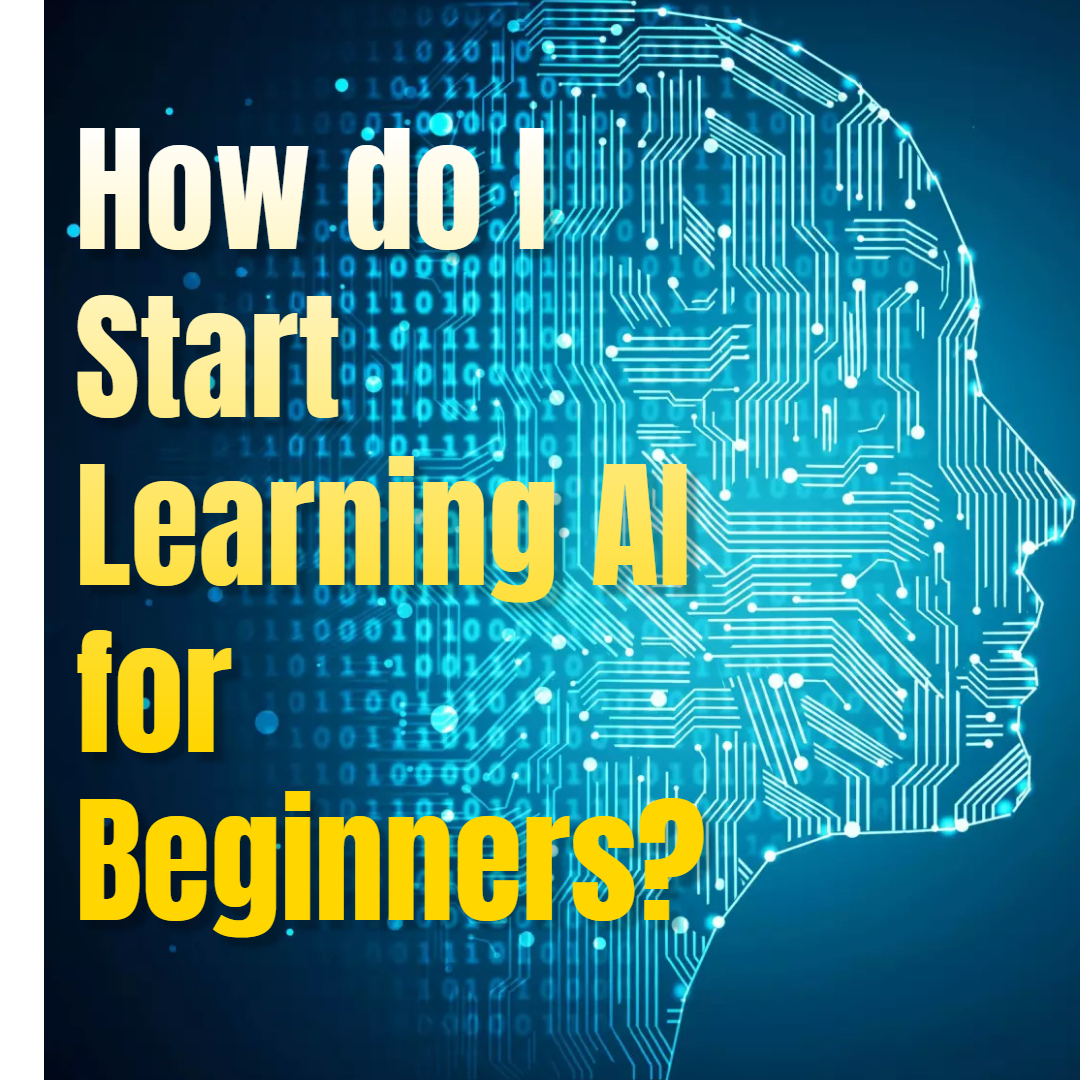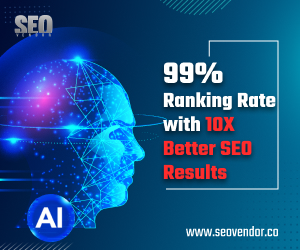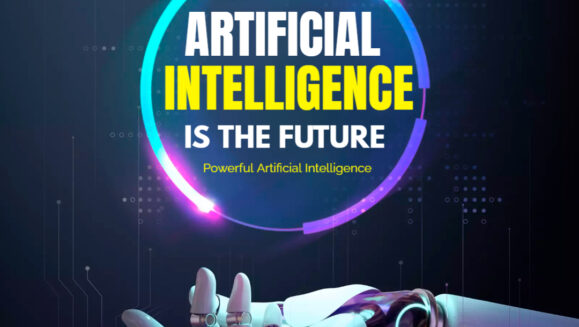In the rapidly evolving landscape of technology, one phenomenon stands out as the cornerstone of innovation and transformation: Artificial Intelligence (AI). As we step into 2023, the significance of AI has never been more apparent. A staggering 97% of business owners anticipate positive changes in their operations, all thanks to the integration of advanced AI tools like ChatGPT, Midjourney, and Bard, according to a survey conducted by Forbes Advisor. This monumental shift is propelling AI into the mainstream, reshaping industries and revolutionizing the way we approach complex problems.
Navigating the AI Landscape
For those venturing into the realm of AI, whether as an aspiring data scientist, machine learning engineer, AI researcher, or simply an enthusiast, this guide serves as your compass. Throughout this comprehensive article, we will provide you with a roadmap to master AI from scratch. Our insights are curated from industry experts who have not only witnessed but actively shaped the evolution of AI.
Embracing the AI Revolution
The journey begins with understanding the essence of AI. At its core, AI is a branch of computer science dedicated to creating systems that emulate human intelligence. These systems excel at tasks ranging from natural language comprehension to pattern recognition, decision-making, and experiential learning. Within the broad expanse of AI lie distinct subfields, each with its unique objectives and specializations.
The Three Tiers of AI
Artificial Narrow Intelligence (ANI):
This prevalent form of AI focuses on performing singular tasks. Examples include voice recognition or recommendations on streaming services.
Artificial General Intelligence (AGI):
AGI embodies a higher level of intelligence, demonstrating the ability to understand, learn, adapt, and apply knowledge across a diverse range of tasks, akin to human capabilities. While strides have been made, as of 2023, this remains largely theoretical.
Artificial Super Intelligence (ASI):
Envisioned as the pinnacle of AI, ASI refers to a hypothetical future where AI surpasses human intelligence across a spectrum of economically valuable work. While captivating, this concept remains largely speculative.
Distinguishing AI from Related Fields
In the discourse surrounding AI, terms like machine learning, deep learning, and data science often come into play. While boundaries may blur, establishing a foundational understanding is crucial.
Decoding the Jargon
Artificial Intelligence (AI):
Refers to computer systems endowed with human-like intelligence, reasoning, and learning capabilities.
Machine Learning (ML):
A subset of AI, ML focuses on developing algorithms with the ability to learn without explicit programming.
Deep Learning:
A subset of ML, deep learning is responsible for groundbreaking advancements in AI applications such as self-driving cars and ChatGPT. It harnesses neural networks inspired by the brain’s structure, particularly adept with unstructured data like images, videos, and text.
Data Science:
A multidisciplinary field employing a myriad of skills, including data analysis, statistics, and visualization, to extract insights from data.
Seizing the AI Opportunity
As we stand on the cusp of the AI revolution, the impetus to learn AI is not merely a buzzword, but a transformational force reshaping how we live, work, and interact. The surge in demand for AI skills is palpable, with the World Economic Forum’s Future of Jobs report placing AI and machine learning specialists at the forefront of rapidly growing professions in the next five years. Industries across the spectrum are integrating AI technologies to streamline operations and enhance decision-making, indicating a sustained demand for AI specialists.
The Economic Landscape of AI
Fast-Growing Field:
AI is not a distant future; it’s the present. The number of AI jobs has witnessed exponential growth in recent years, with AI and machine learning specialists leading the pack. According to the World Economic Forum, this trend is expected to continue.
Lucrative Remuneration:
Naturally, the surge in demand for AI skills is paralleled by attractive compensation. As of 2023, an AI engineer in the United States commands an average salary of $128,479 per annum, with potential bonuses and profit-sharing opportunities. Similarly, machine learning engineers and data scientists enjoy competitive salaries.
Intellectual Stimulation:
AI transcends the realm of high-paying jobs; it presents an intellectually stimulating landscape. Building algorithms to solve intricate problems, designing models that mimic human intelligence, and applying these technologies in real-world scenarios are inherent to AI professionals.

The Learning Curve: How Long Does it Take to Learn AI?
The time investment required to master AI is contingent on the learning path one undertakes. Whether through self-guided study or formal education, each route offers a distinct trajectory.
Self-Taught Journey
Tailored Learning Experience:
The duration of self-guided learning varies widely, contingent on prior knowledge, dedication, and access to learning resources. For those committed, a solid understanding of AI concepts, programming languages like Python, and foundational mathematical concepts can be attained within several months to a year.
Accelerated Learning:
Self-paced online courses, tutorials, and hands-on projects act as catalysts in expediting the learning process.
Formal Education
Structured Curriculum:
Pursuing a formal education in computer science, data science, or related fields is a structured path towards AI mastery. A bachelor’s degree in these disciplines typically spans three to four years, offering comprehensive training in AI.
Charting the Course: Learning AI From Scratch in 2023
The endeavor to learn AI from scratch is undeniably exciting, yet it comes with its share of challenges. AI is a diverse field with numerous subtopics, necessitating a clear roadmap, the right resources, and a strategic approach.
-
Mastering Prerequisite Skills
Before delving into the intricacies of AI, a foundation in certain areas is paramount. Basic mathematical proficiency, including linear algebra, calculus, and probability, lays the groundwork. Understanding statistics is equally pivotal, enabling effective data interpretation and insight extraction. A proactive mindset, coupled with an insatiable appetite for learning, forms the cornerstone of success in the dynamic realm of AI.
-
Cultivating Specialist AI Skills
With a solid foundation in place, the journey advances towards developing specialized AI skills. These skills encompass statistics, mathematics, programming, data structures, and data manipulation. Each facet plays a crucial role in the development and application of AI algorithms.
-
Harnessing Essential AI Tools and Packages
Mastery of the right tools and packages is instrumental in AI proficiency. Python emerges as the predominant language, owing to its user-friendly syntax and a wealth of data science libraries. Key libraries such as pandas for data manipulation, NumPy for mathematical operations, and Scikit-Learn for machine learning form the bedrock of AI development.
-
Embracing Commercially Available APIs
For hands-on AI application, commercially available APIs offer a swift entry point. APIs from providers like OpenAI, Cohere, and Anthropic grant access to pre-trained models, expediting AI implementation.
Crafting Your Unique Learning Path
As your AI journey unfolds, bear in mind that specialization aligns with career aspirations. Staying attuned to evolving trends, participating in AI communities, and embracing the ethical dimensions of AI are facets that distinguish proficient practitioners.



